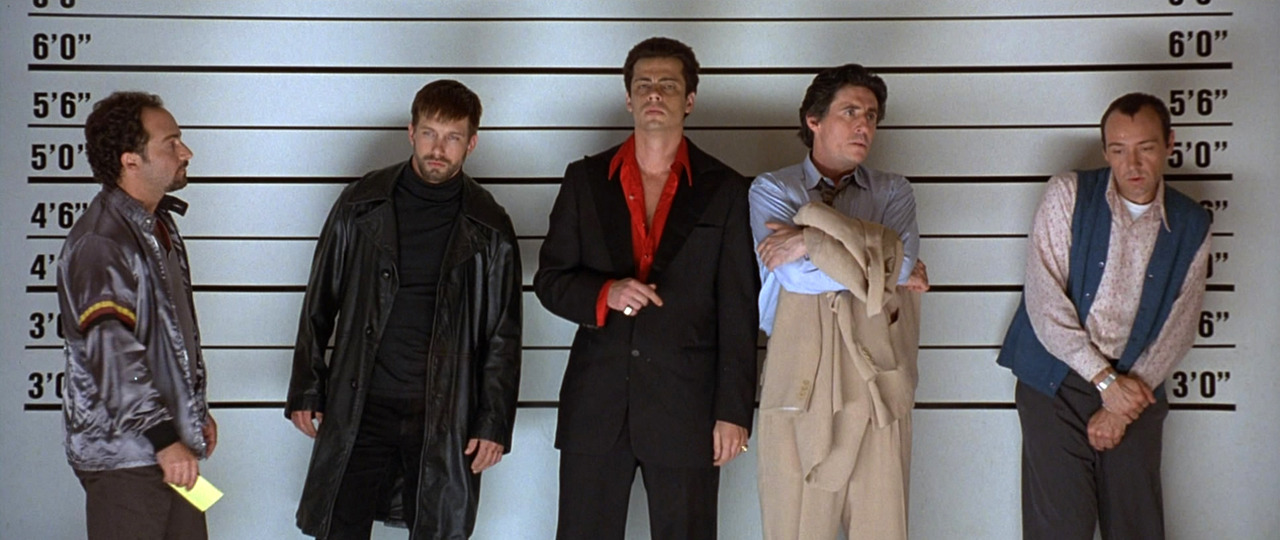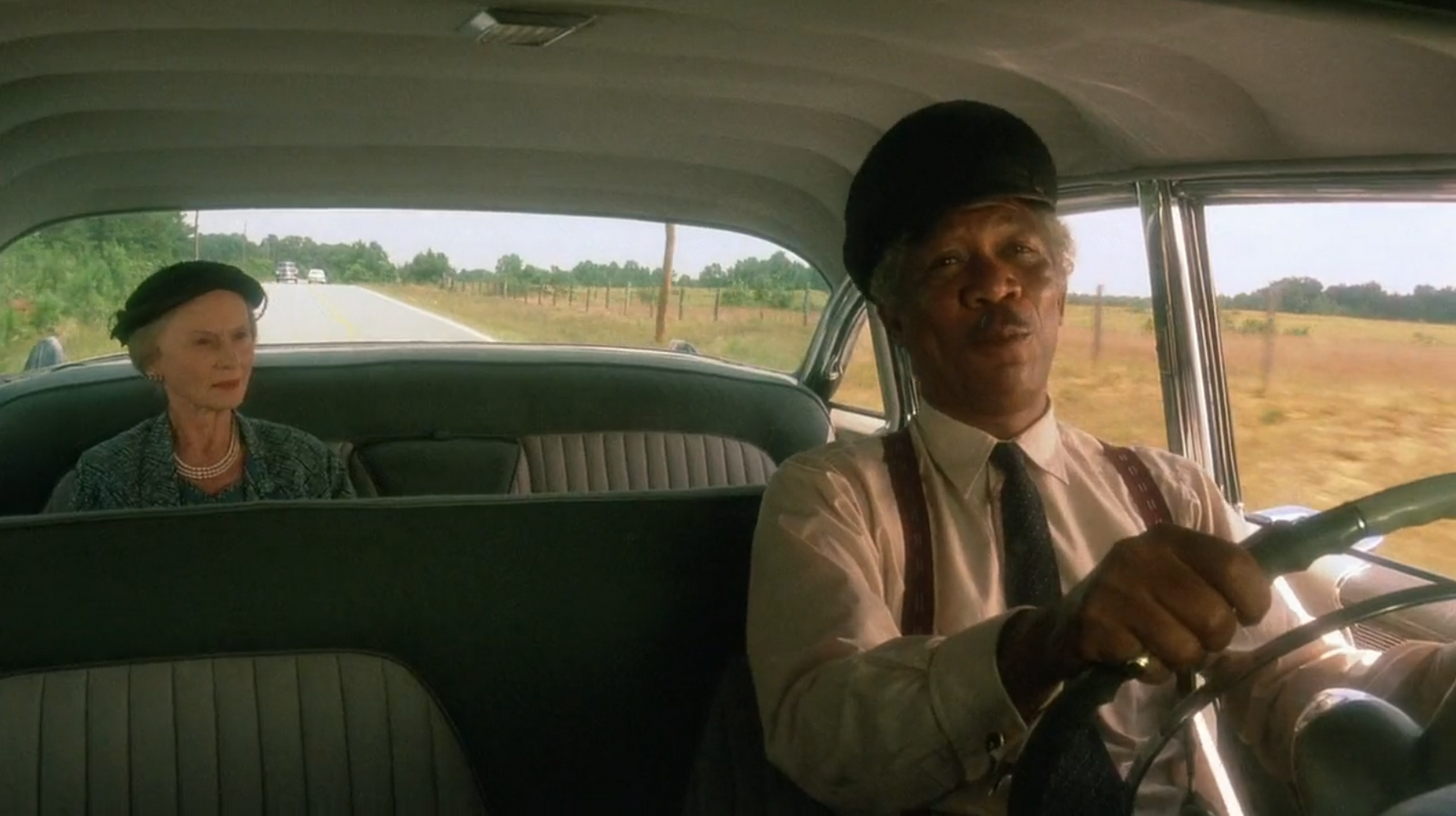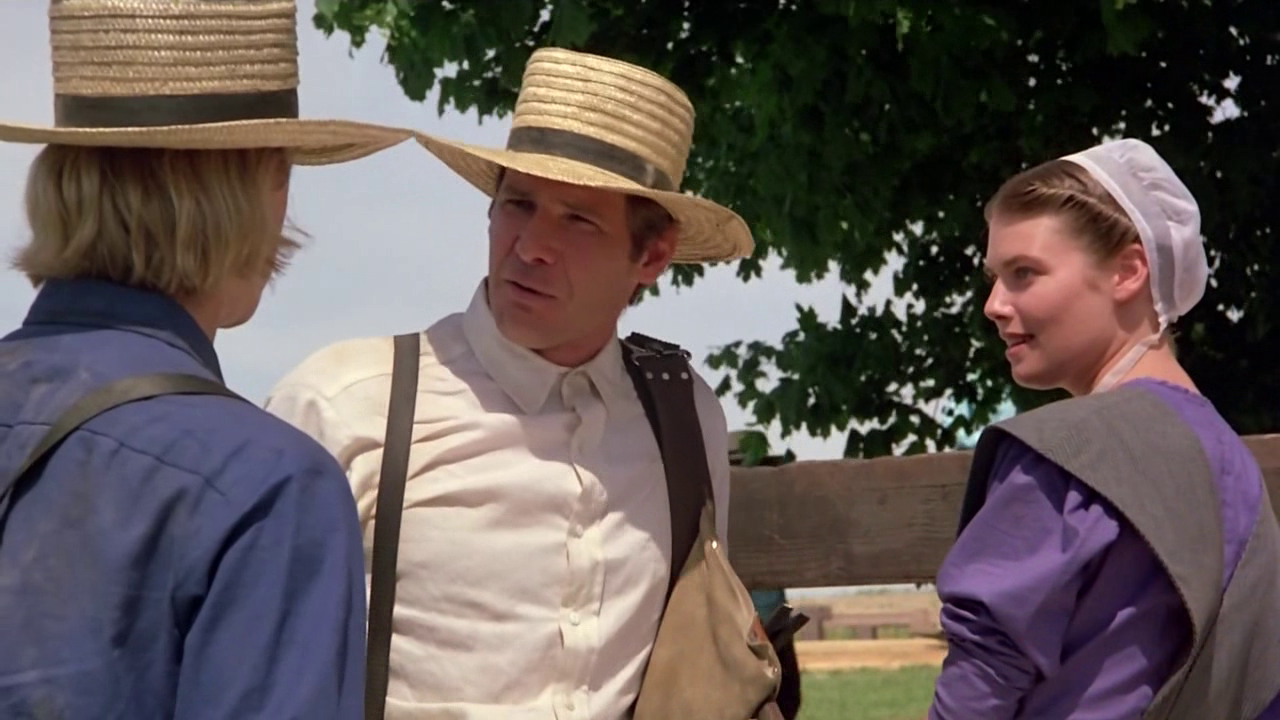#108 - The Departed
Martin Scorsese, 2006

Two different cadets in the Boston police - one a mole for a crime lord, the other expelled in order to go undercover - find themselves on opposite sides during an investigation into organised crime.
How do you judge a remake of a film you liked? It'd be tempting just to make a laundry list that compares the two different versions of the film, highlighting the alterations the later film makes and whether or not they add or subtract to the experience of the original (though I figure that if you're listing comparisons then you're more likely to be criticising the remake than praising it). Of course, you should at least try to judge the remake on its own terms while not constantly picking apart its faithfulness to (or deviation from) its source material. Having decided to re-watch The Departed for what I think would be my third viewing - and straight after watching source film Infernal Affairs, too - I figured that, for the sake of this review at least, if you want to go through a side-by-side comparison then you can probably piece it together by comparing these reviews. I could even publish every comparison I make in a separate post, but I figure they'll fit into this review well enough anyway.
Long story short, I actually hate The Departed. Solid high concept aside, it's a considerably bloated film that struggles to fill out to its immense 150-minute running time. More often than not I thought the film added extra bits just to explain things to an audience that should be able to follow along anyway. Whole sub-plots are added that have next to no bearing whatsoever on the main plot or any significance in and of themselves. Characterisation isn't much better. Leonardo di Caprio and Matt Damon star as the undercover cop and the criminal mole respectively, but neither one of them has any real effect. Di Caprio all but sends himself into cardiac arrest trying to work himself up into a complex character by alternating between furrowed-brow angst and red-faced roaring (with the occasional scene showcasing how his hard-bitten rat actually has a sensitive side so you know that he really is a good guy), while Damon comes across as a fairly limp example of a tough guy. Mark Wahlberg supposedly earns an Oscar nomination for playing a tough-talking Bostonian (gee, what a stretch of his acting ability) whose character spends at least 95% of his screen-time being a useless and grating annoyance. It seems like the only reason his character even exists is so that
In my review for Prizzi's Honor, I criticised Jack Nicholson's performance as a Mob enforcer for being a sluggish, marble-mouthed, charm-free imitation of himself. Add twenty years and the fact that the makers decided that every male character in this film needed to be violent and hypermasculine to the point where calling them cartoonish would be an understatement and, well, I just feel kind of embarrassed for Nicholson as he plays an incredibly deranged crime boss who can't even be considered a "love-to-hate" kind of character. Vera Farmiga plays the token female character, who is relegated to being an incredibly bland third part of a love triangle that includes di Caprio and Damon, neither of which I can understand her falling for. At least the original film could give its leads separate love interests with fairly distinct personalities, even if they had all of five scenes between the two of them.
It's also rather amazing how The Departed stretches the already-thin plot of Infernal Affairs out by an extra hour, mainly by padding it with the sort of cinema that people have come to expect from top-tier Scorsese. Bloody gangland violence, cinematographic flair, lightning-quick editing, supposedly killer choice of music...yeah, it's Scorsese, but here it seems like self-parody moreso than a master filmmaker playing to his strengths. Non-diegetic music tracks will drop in and out suddenly, supposedly because it fits the pacing of the scenes but in practice comes across as distractingly incomplete and similar to a damaged CD skipping while it plays. Thelma Schoonmaker won an Oscar for editing here, and I will concede that the film moves at a rollicking pace thanks to the speed of the cuts but technical appreciation only goes so far when you realise that there's not much of note actually happening between these hundreds and hundreds of cuts. One scene has di Caprio deliver a short line and it cuts at least twice as he says his line. People have grumbled about the symbolism involving a certain furry rodent's appearance in this film, but I'm honestly just as annoyed by all the X's you see in the background. We get it, Marty, you want to pay homage to Scarface. If you the reader ever watch this film again, now you can't unsee them.
If there is one thing that I reckon that The Departed handles even remotely better than Infernal Affairs, it's definitely
As important as that scene and the remake's handling of it may seem, it is an anomaly amidst the rest of this film (okay, maybe that and the scene where di Caprio pursues Damon through a neon-washed street). The Departed is an overblown, hollow, frustrating and frankly embarrassing film to watch. It takes the nuance and restraint of the original and filters it through a loud and brutish Hollywood machine under the impression that making everyone and everything nastier automatically makes for captivating cinema. Many of the characters are unsympathetic loudmouths or boring stereotypes or both. The film speeds along with dozens of cut per minute so as to cover for the fact that that its plot does not adequately match up to its length. I'll be glad if I never have to hear "I'm Shipping Up To Boston" ever again. Even the live version of "Comfortably Numb" was put to far less painful use in The Sopranos (ironically, by being played off a soundtrack CD for The Departed). Everything that carried across from the original is given an almost parodic Westernisation (Bad guys meet in a regular movie theater in the original? Now they're meeting in a porno theater and one of them is carrying a giant black dildo. Instant classic.) The Departed is definitely my least favourite Scorsese film and definitely my least favourite Best Picture winner. I can understand the Academy wanting to give Scorsese a sympathy vote, but the fact that they gave it to such an insufferable example of diminishing returns, well...all I can say is "rats".
Martin Scorsese, 2006

Two different cadets in the Boston police - one a mole for a crime lord, the other expelled in order to go undercover - find themselves on opposite sides during an investigation into organised crime.
How do you judge a remake of a film you liked? It'd be tempting just to make a laundry list that compares the two different versions of the film, highlighting the alterations the later film makes and whether or not they add or subtract to the experience of the original (though I figure that if you're listing comparisons then you're more likely to be criticising the remake than praising it). Of course, you should at least try to judge the remake on its own terms while not constantly picking apart its faithfulness to (or deviation from) its source material. Having decided to re-watch The Departed for what I think would be my third viewing - and straight after watching source film Infernal Affairs, too - I figured that, for the sake of this review at least, if you want to go through a side-by-side comparison then you can probably piece it together by comparing these reviews. I could even publish every comparison I make in a separate post, but I figure they'll fit into this review well enough anyway.
Long story short, I actually hate The Departed. Solid high concept aside, it's a considerably bloated film that struggles to fill out to its immense 150-minute running time. More often than not I thought the film added extra bits just to explain things to an audience that should be able to follow along anyway. Whole sub-plots are added that have next to no bearing whatsoever on the main plot or any significance in and of themselves. Characterisation isn't much better. Leonardo di Caprio and Matt Damon star as the undercover cop and the criminal mole respectively, but neither one of them has any real effect. Di Caprio all but sends himself into cardiac arrest trying to work himself up into a complex character by alternating between furrowed-brow angst and red-faced roaring (with the occasional scene showcasing how his hard-bitten rat actually has a sensitive side so you know that he really is a good guy), while Damon comes across as a fairly limp example of a tough guy. Mark Wahlberg supposedly earns an Oscar nomination for playing a tough-talking Bostonian (gee, what a stretch of his acting ability) whose character spends at least 95% of his screen-time being a useless and grating annoyance. It seems like the only reason his character even exists is so that
WARNING: "The Departed" spoilers below
someone is still left to kill Damon's character and give the film a "happy" ending, which I absolutely hate when it comes to this film because it seems like an easy way out for Damon's character, who is clearly so miserable by the end of the film that letting him live with his mistakes would seem to be the harsher punishment, but no.
In my review for Prizzi's Honor, I criticised Jack Nicholson's performance as a Mob enforcer for being a sluggish, marble-mouthed, charm-free imitation of himself. Add twenty years and the fact that the makers decided that every male character in this film needed to be violent and hypermasculine to the point where calling them cartoonish would be an understatement and, well, I just feel kind of embarrassed for Nicholson as he plays an incredibly deranged crime boss who can't even be considered a "love-to-hate" kind of character. Vera Farmiga plays the token female character, who is relegated to being an incredibly bland third part of a love triangle that includes di Caprio and Damon, neither of which I can understand her falling for. At least the original film could give its leads separate love interests with fairly distinct personalities, even if they had all of five scenes between the two of them.
It's also rather amazing how The Departed stretches the already-thin plot of Infernal Affairs out by an extra hour, mainly by padding it with the sort of cinema that people have come to expect from top-tier Scorsese. Bloody gangland violence, cinematographic flair, lightning-quick editing, supposedly killer choice of music...yeah, it's Scorsese, but here it seems like self-parody moreso than a master filmmaker playing to his strengths. Non-diegetic music tracks will drop in and out suddenly, supposedly because it fits the pacing of the scenes but in practice comes across as distractingly incomplete and similar to a damaged CD skipping while it plays. Thelma Schoonmaker won an Oscar for editing here, and I will concede that the film moves at a rollicking pace thanks to the speed of the cuts but technical appreciation only goes so far when you realise that there's not much of note actually happening between these hundreds and hundreds of cuts. One scene has di Caprio deliver a short line and it cuts at least twice as he says his line. People have grumbled about the symbolism involving a certain furry rodent's appearance in this film, but I'm honestly just as annoyed by all the X's you see in the background. We get it, Marty, you want to pay homage to Scarface. If you the reader ever watch this film again, now you can't unsee them.
If there is one thing that I reckon that The Departed handles even remotely better than Infernal Affairs, it's definitely
WARNING: "The Departed/Infernal Affairs" spoilers below
the climatic elevator sequence. The original took the biggest shock in the movie and made it look like a second-rate attempt at John Woo craftmanship - meanwhile the remake just has a super-sudden bullet in the head, which I grudgingly admit suits the scene a lot better. Of course, this is undone by the fact that the death of the Martin Sheen character is handled much worse in the remake so I guess it more than cancels out.
As important as that scene and the remake's handling of it may seem, it is an anomaly amidst the rest of this film (okay, maybe that and the scene where di Caprio pursues Damon through a neon-washed street). The Departed is an overblown, hollow, frustrating and frankly embarrassing film to watch. It takes the nuance and restraint of the original and filters it through a loud and brutish Hollywood machine under the impression that making everyone and everything nastier automatically makes for captivating cinema. Many of the characters are unsympathetic loudmouths or boring stereotypes or both. The film speeds along with dozens of cut per minute so as to cover for the fact that that its plot does not adequately match up to its length. I'll be glad if I never have to hear "I'm Shipping Up To Boston" ever again. Even the live version of "Comfortably Numb" was put to far less painful use in The Sopranos (ironically, by being played off a soundtrack CD for The Departed). Everything that carried across from the original is given an almost parodic Westernisation (Bad guys meet in a regular movie theater in the original? Now they're meeting in a porno theater and one of them is carrying a giant black dildo. Instant classic.) The Departed is definitely my least favourite Scorsese film and definitely my least favourite Best Picture winner. I can understand the Academy wanting to give Scorsese a sympathy vote, but the fact that they gave it to such an insufferable example of diminishing returns, well...all I can say is "rats".
__________________
Iro's Top 100 Movies v3.0
I really just want you all angry and confused the whole time.







